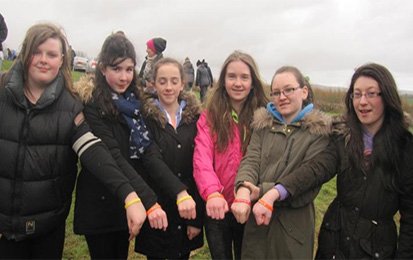Peer 4 Peer Youth Leadership
“Never doubt that a small group of thoughtful, committed citizens can change the world. In fact, it is the only thing that ever has”.
Margaret Mead
What is Peer Education?
Peer education proposes education among equals and aims to encourage the active involvement and development of young people through information-sharing, debate and Interaction. Peer education is an innovative method for working with young people. The aim of this programme is to introduce a peer education model based on shared practice as an instrument for working with young people in need of support
Involvement in peer groups encourages the following in young people:
_ Active participation
_ Involvement and familiarity with the group and society
_ Interest in social experience
_ Independence and assertiveness
_ improved relationship with themselves, peers, family and other areas of society
_ Greater awareness of their own potential and limitations (strengths and weaknesses)
_ Development of skills
In the context of this programme, peer education is the process whereby well-trained and motivated young people undertake informal or organised educational activities with their peers (those similar to themselves in age, background or interests) over a period of time, aimed at developing their knowledge, attitudes, beliefs and skills and enabling them to be responsible for and protect their own health.
Peer education can take place in small groups or through individual contact and in a variety of settings: in schools and universities, clubs, churches, workplaces, on the street or wherever young people gather.
A young person’s peer group has a great influence on the way he or she behaves. This is true of both risky and safe behaviour. Peer education makes use of peer influence in a positive way. The credibility of peer educators in the eyes of their target group is indeed an important base upon which peer education can be built.
Young people who have taken part in peer education initiatives often praise the fact that information is transmitted more easily because of the educator’s and the audience’s shared background and interests in areas such as taste in music and popular celebrities, use of the language, family themes (brother and sister issues, struggle for independence, etc.) and role demands (student, team member, etc.). Youth peer educators are less likely to be seen as authority figures ‘preaching’ about how others should behave from a judgemental position. Rather, the process of peer education is perceived more like receiving advice from a friend ‘in the know’, who has similar concerns and an understanding of what it’s like to be a young person.
Peer education is also a way to empower young people: it offers them the opportunity to participate in activities that affect them and to access the information and services they need to protect their health.
Our ‘Healthy Life Choices Programme’ works in harmony with the Walk Tall and SPHE in school, it is delivered to 6th Class National School students in school or out of school context. The teacher is involved in planning and implementing the programme.
It involves:
- · Organised sessions with students in a secondary and primary school or in a Parish or Youth club setting, using interactive techniques such as quizzes, role plays or stories;
- · Trained facilitators with on-going training and support
- · Involving other services and agencies from the community
The Peer leaders
The Peer leaders are often in Transition Year in school or are Leaders in a Youth Club or teenagers from a parish.
They enter in to a scheduled training programme over 2-3 days or 8 Sessions
The training programme involves
- · The Ethos of Drug Education
- · Facilitation & Presentation Skills
- · How Groups develop
- · Self Esteem in young people
- · Values & Attitudes
- · Conflict Resolution / Problem Solving
- · Information & Facts on substance misuse
- · Legal & First aid
- · Four session Healthy Life style Programme
The Peers then work together in chosen groups / pairs and prepare to facilitate the 6th Class students
The Students
The students are then brought together in groups of 12-15 and will have a minimum of two Peer leaders and an Adult present while the programme is delivered.
The Programme is delivered in four sessions
Session 1
- · Communication
- · Assertiveness – Saying No and refusal skills
- · Listening skills
- · Staying safe – mobile & Internet awareness
Session 2
- · Smoking
- · Effects & consequences
- · Cost
- · Facts
- · prevention
Session 3
- · Alcohol
- · Effects
- · Advertising
- · Legal / Illegal Drugs
Session 4
- · Decision Making
- · Natural Buzz
- · Recipe for a friend
- · Bullying
There is a pack supplied to all groups involved in facilitating the programme which includes:
- · Peer Trainers book
- · Facilitators Book
- · Workbook
- · Activity / Worksheets
Why does it work?
- Young people appreciate and are influenced in positive ways by a peer-led intervention if it is well-designed and properly supervised;
- Serving as a peer educator provides a challenging, rewarding opportunity to young people to develop their leadership skills, gain the respect of their peers, and improve their own knowledge base and skills. Peer educators often change their own behaviour after becoming a peer educator;
Should you require any further information on this programme please contact us
Darren Butler John Taaffe
00353 (0) 877901461 00353(0) 868611531
darren.butler@iecon.ie john.taaffe@iecon.ie
web: irishbishopsdruginitiative.com Office: 00353(0)1- 5053044

